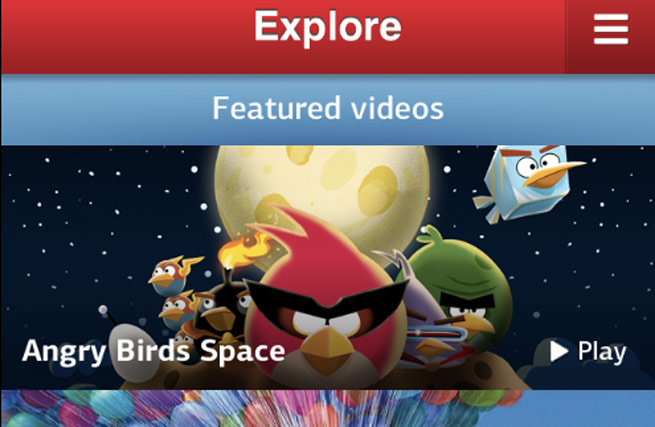
And this one doesn’t have the pay-to-play feature Apple really hated about AppGratis.
[aditude-amp id="flyingcarpet" targeting='{"env":"staging","page_type":"article","post_id":735384,"post_type":"story","post_chan":"none","tags":null,"ai":false,"category":"none","all_categories":"business,","session":"D"}']“We brought something new to the table,” cofounder and CEO of AppCurious Riz Nwosu told me today when I asked how his app was approved. “Instead of just taking what Apple does and making it a bit nicer, we brought a new paradigm to the app store.”
AI Weekly
The must-read newsletter for AI and Big Data industry written by Khari Johnson, Kyle Wiggers, and Seth Colaner.
Included with VentureBeat Insider and VentureBeat VIP memberships.
“I think the hoopla about app discovery apps being booted is because they didn’t think of app discovery in a creative way,” Nwosu says. “They’re just promoting apps and repurposing an app store.”
AppCurious has no sign of the feature Apple really hated about AppGratis: the capability for a developer to buy placement, get featured, and drive hundreds of thousands and sometimes millions of downloads. Instead, it’s a social Q&A network for app users that invites developers into the conversation: When someone comments on their app, developers are notified and can respond.
In a way, it’s something like the social app discovery functionality Facebook built in 2011, but in app form. Or like AppUpdate for Android, which helps you find new apps based on your friends’ apps. A similar app on the iOS app store that has also survived the Apple app-discovery witchhunt is AppGrooves, which also enables you to make socially influenced app download decisions.
The biggest difference between the new breed of app discovery apps that Apple is permitting is probably their monetization model.
AppCurious, for instance, has no plans to charge developers per install, as that is user-driven. Instead, Nwosu plans to charge users for expert recommendations — similar to Quora’s model — charge app developers for featuring their app promo videos on the AppCurious explore page, and eventually, when he reaches scale, charge developers for access to their app’s brand page inside AppCurious, so they can communicate with users, update news, and respond to comments.
Nwosu is still building an audience for AppCurious, but he’s particularly well placed to do so. Given his startup’s location in Hollywood, he sees star power as the way his app can break out of the million-strong app pack and vault into the bigtime.
[aditude-amp id="medium1" targeting='{"env":"staging","page_type":"article","post_id":735384,"post_type":"story","post_chan":"none","tags":null,"ai":false,"category":"none","all_categories":"business,","session":"D"}']
“We have some connections with celebrities,” he told me. “It would be great to get Justin Bieber to get on AppCurious, for example.”
There’s on problem with that plan: Stars are getting savvy about tech companies, and several that AppCurious has approached have already asked for equity in the company, which Nwosu is reluctant to provide.
Image credits: AppCurious
VentureBeat's mission is to be a digital town square for technical decision-makers to gain knowledge about transformative enterprise technology and transact. Learn More